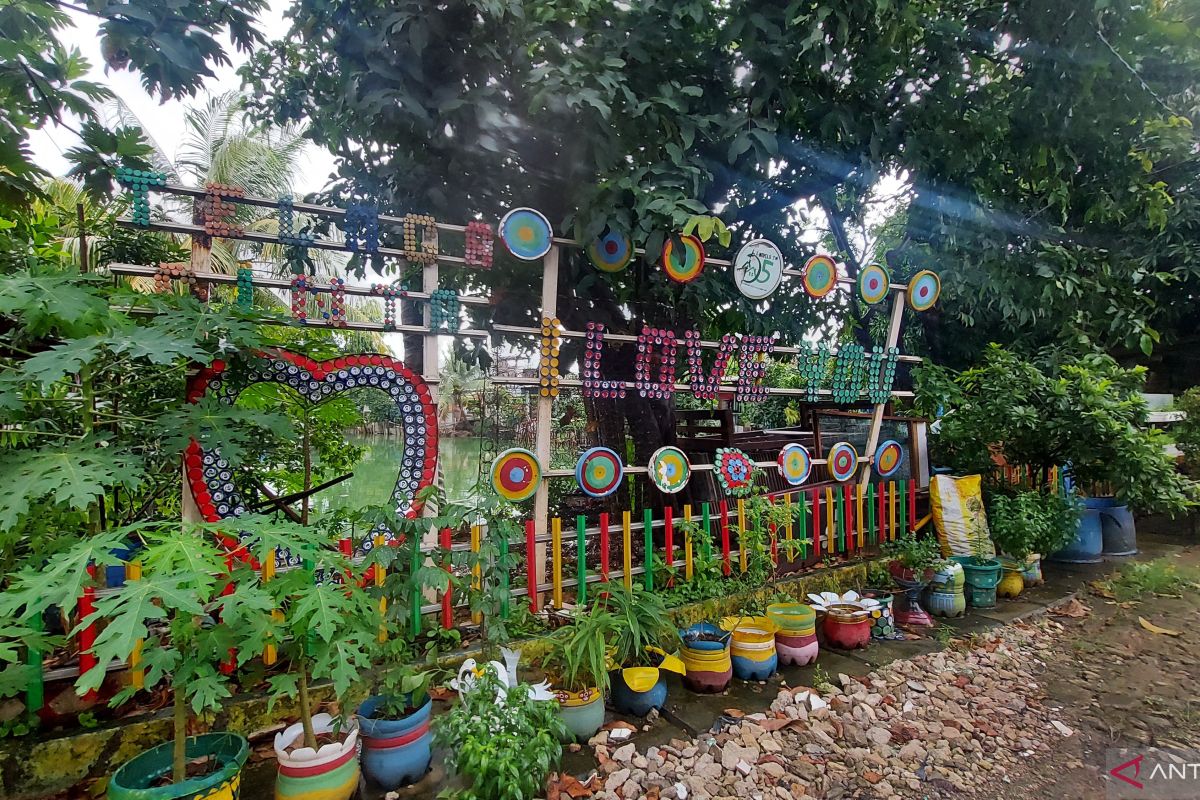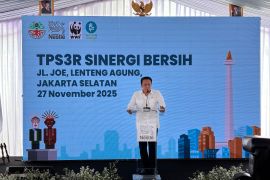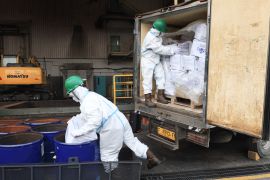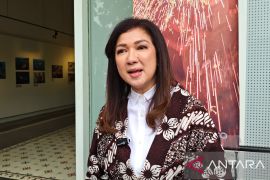In urban life, environmental problems are increasing due to a number of community activities eroding environmental sustainability.
Air pollution, waste pollution, flooding, and other environmental problems are common in urban areas because people do not realize the importance of protecting the environment.
However, it was such environmental problems that led some residents of Telagamurni complex in Bekasi District, West Java, to improve their surrounding environment and create a better life.
Located in a dense industrial area which is not too far away from the metropolitan city of Jakarta, Telagamurni was initially a barren residential area as there were no trees and only air pollution from factories.
Then, there was waste discharge from textile and steel factories polluting waters and affecting water quality in the area frequently.
But now, this residential area has become green and very comfortable to live in.
Sunyoto is one of the residents in the area who took up reforestation by planting a variety of plants around his home.
He believes that by keeping the house and the surrounding environment beautiful and green, everyone is basically trying to realize their dream of building a better life.
"By protecting the environment, the environment itself will, in turn, protect humans," he said while speaking to ANTARA at a park near his house on Saturday.
This belief motivated Sunyoto to urge other residents in the area to plant trees around their homes.
Sunyoto said that at first, it was not easy convincing his neighbors to go "green" since most of them were factory workers who preferred to rest rather than do other activities after work.
However, Sunyoto continued to build understanding among his neighbors about the importance of protecting the environment and the benefits that can be felt from a clean and beautiful environment.
In time, his efforts bore fruit with more and more neighbors planting plants in their yards.
Once a barren zone, the Telagamurni housing complex in Telagamurni village, West Cikarang sub-district, Bekasi district, West Java province, is now lush with plants. (ANTARA/Katriana)
Food security
Currently, the yard of almost every home in the residential area is adorned with plants.
Besides ferns, aglaonema, sansevierias, and other ornamental plants that are believed to absorb more pollutants, the residents have also planted rhizome plants such as ginger, turmeric, and galangal, which are known for their medicinal properties.
In addition, the residents are growing food crops such as chilies and tomatoes, as well as trees such as guava, mango, papaya, and so on.
Planting such plants not only beautifies the environment around the house, but also adds value because these plants can help residents meet their daily needs.
This has especially been the case amid the food price spike during Ramadan and increasingly uncertain economic conditions. Planting food crops in yards can serve as an alternative solution to meet daily food needs.
Heni is one of the residents who is using her minimalistic yard to grow many types of food plants.
Besides several ornamental plants, she has planted chili, tomato, and papaya in the backyard to meet her daily needs.
When the chili and tomato plants bear fruit, Heni picks them to cook meals with.
"I feel very happy because I can meet my daily needs from the plants I grow in my yard," she said.
Besides reforestation, several residents in the complex are also cultivating catfish around their homes.
One of them is Didik, who is cultivating catfish in his yard to meet his daily needs and increase his income.
He does not need to spend a lot of money to cultivate catfish since he gets their feed from plant and food waste.
Waste processing
Preserving environmental sustainability cannot be separated from the need to maintain environmental cleanliness.
Hence, residents in Telagamurni are not only planting plants and trees, but also recycling waste so that the household waste produced every day does not pollute the environment.
Efforts to recycle waste can also provide added value to the economy.
As part of waste processing, each resident is encouraged to separate waste into organic and inorganic waste.
Residents are encouraged to collect organic waste in containers, which are moved to a predetermined location in each neighborhood in the area.
Residents collecting organic waste usually receive a savings book, and the accumulated savings can be exchanged for money. This money can, in turn, help augment their income.
The collected organic waste is then processed by local residents into fertilizer, which they sell or use to fertilize the soil in their yards.
Meanwhile, some of the inorganic waste collected by residents, such as bottle caps and plastic containers, is processed into craft items, such as flowers, vases, bags, and chairs.
Besides recycling plant waste and plastic waste into new valuable goods, the residents are also turning used cooking oil waste into new valuable products, such as soap.
By planting plants and trees as well as processing waste into valuable products, residents in Telagamurni complex have not only succeeded in preserving the environment, but also creating a circular economy and increasing food security.
The residential complex has won the "Best Green Village" award several times — at the sub-district, district, and national levels.
Hopefully, a similar spirit of preserving the environment will stir people in other regions across Indonesia into action.
Related news: Tebet Eco-Park emerges as oasis in busy Jakarta
Related news: Between park and garden in Jakarta
Editor: Rahmad Nasution
Copyright © ANTARA 2024












